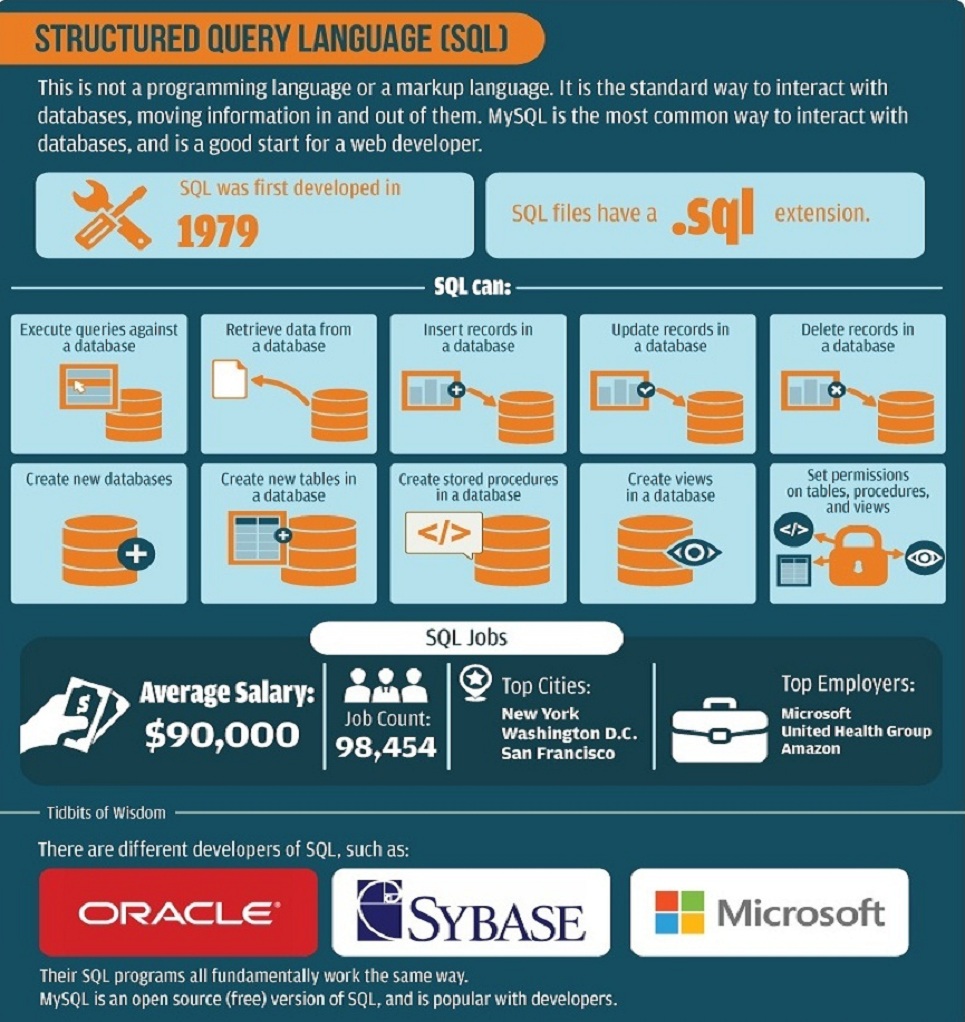Oracle SQL Training
SQL Structured Query Language) is a domain-specific language used in programming and designed for managing data held in a relational database management system (RDBMS), SQL offers two main advantages: first, it introduced the concept of accessing many records with one single command; and second, it eliminates the need to specify how to reach a record, e.g. with or without an index.
The scope of SQL includes data query, data manipulation (insert, update and delete), data definition (schema creation and modification), and data access control. Although SQL is often described as, and to a great extent is, a declarative language (4GL), it also includes procedural elements.
SQL was one of the first commercial languages for Edgar F. Codd’s relational model, as described in his influential 1970 paper, “A Relational Model of Data for Large Shared Data Banks”. Despite not entirely adhering to the relational model as described by Codd, it became the most widely used database language.
SQL became a standard of the American National Standards Institute (ANSI) in 1986, and of the International Organization for Standardization (ISO) in 1987. Since then, the standard has been revised to include a larger set of features. Despite the existence of such standards, most SQL code is not completely portable among different database systems without adjustments.

Structured query language helps you manage data in a relational database. Relational databases use a system of tables to store individual pieces of information. They are known as “relational” because the data is organized based on the relationships between items.
Few key features of Oracle SQL is-
-
Grouping Transactions
- The ability to group several transactions into the same batch for processing sets Oracle apart from its competitors.
-
Improved Performance
-
In addition to batch processing of transactions, Oracle offers other methods of improving your database’s performance. You can use multiple servers to work on the same database with the Real Application Cluster feature. This can significantly increase your processing power for only the price of an additional server. Oracle SQL also gives you more options to fine-tune the operation of your database to suit the capabilities of your server.
-
-
Versatility
-
Oracle SQL gives you the flexibility of choosing to run your database in any operating system. Dedicated languages are only compatible with operating systems from the same manufacturer.
-
Market is full of SQL Jobs, SQL is used in almost every domain.
Here are some of the types of positions that require SQL skills:
- Backend developer
- Database administrator (DBA)
- Data analyst
- Data scientist
Focus Training Services Provides SQL Training with highly experienced trainers.
We are focusing to fill the gap of industry requirement and available resources.
at Focus Training Services we give hands on practice training in SQL with PLSQL to help students make their career in Database field.
Our Oracle Experts
Our SQL Server Expert
Mr. Avinash
- More than 7 years of experience in training and development.
- worked with Cognizant.
- 7+ Corporate training
- Trained 2000+ candidates
Our SQL Server Expert
Mr. Servesh
- More than 6 years of experience in training and development.
- worked with Fronyn Technology
- 7+ Corporate training
- Trained 500+ candidates